Looking for self help advice that’s different than usual? Then Mark Manson is the right author for you! He isn’t afraid to speak his mind and say the opposite of what most popular authors tell us:
- Instead of “think positive”… he says “you’re always gonna feel bad sometimes.”
- Instead of “you can do it!”… he says “you’re not special.”
- Instead of “say yes to everything”… he says “say no more often.”
But it’s not all negative and depressing. In fact, this book’s core message is very positive and uplifting: we must carefully choose what is most important to us, then stop caring about anything outside that.
The Subtle Art of Not Giving a F*ck is clearly influenced by older philosophies like Stoicism, Buddhism and Existentialism (PhilosophyBasics.com). But it’s written in a way that’s easy for modern people to digest—with humour, cursing, pop culture references and Mark’s personal stories.
Who is Mark Manson?
Mark Manson (author site) grew up in Texas and graduated from Boston University. He only lasted 3 weeks at a regular desk job before he decided to quit and try to build an online business to gain freedom. So in 2009 Mark started a blog about dating advice, which slowly transitioned to self help advice. His blog became very popular, with millions of readers around the world enjoying his writing style that is casual and direct. During this time, he also traveled for several years to over 60 countries.
In 2016, Mark released The Subtle Art of Not Giving a F*ck and it became a mega-bestseller, with over 13 million copies sold in over 60 languages. So now let’s dive into our summary/commentary of this book to find out why it’s resonated with so many people!
🧅 1. The Self-Awareness Onion: Discover the values controlling your emotions
We all want to care less about what other people think. That’s why this book has been so popular, right? Maybe if we could learn to “give less of a f***”, then we would be more honest in our relationships and courageous in our careers.
The key to caring less is our values. Values are what we perceive as being important. (EthicsSage.com) They drive our beliefs, judgements, emotions and actions. Values drive our whole lives really. For example, if someone values family over work, they would probably say no to a work promotion to spend more time with their children.
So, what are your values? They are not always obvious, but you can discover your values by completing an exercise Mark Manson calls “peeling the self awareness onion”:
- Feel your emotions. Many people are disconnected from what’s happening inside them. Noticing what you’re feeling is essential to self awareness. You can remember the last time you felt a strong emotion. How did that feel in your body? Where was the emotion located?
- Notice what caused the emotion. What event, person or stimulus triggered the feeling? For example, a man named Bob felt worried that his boss didn’t reply to his message for a long time.
- Examine why you emotionally react in that way. This final step reveals one of your unconscious values, which could involve you having certain beliefs or metrics of judgment. For example, maybe Bob was worried because he believes a late message reply is a sign that his boss doesn’t value or respect him. (But the truth is, there could be many other reasons for a late reply that are totally unrelated to how his boss feels about him.)
The bestselling business author Simon Sinek writes about a similar idea he calls “The Golden Circle.” He says most companies are mediocre because they focus too much on the superficial layers of WHAT they do or HOW they do it. But truly exceptional companies focus on the deepest layer of WHY they do what they do. In other words, they focus on having the right values driving all their team members.
For example, most computer companies were boring because they always talked about WHAT they did or HOW their computers were better. Their advertising was full of jargon like gigaflops, megahertz and hyperbits. But most people don’t care about that. Then Apple came along and captured everyone’s attention with a powerful WHY: They said we should think different. This WHY later allowed them to revolutionize countless other industries with their iPod, iTunes, iPhone, iPad and EarPods.
To care less about other people’s opinions, you must become aware what you find important which are your values. First feel your emotions and notice causes them. Then examine why you have that particular reaction to uncover your deeper values, beliefs and metrics.
✅ 2. Good vs Bad Metrics: Choose the right values for your life
Now is a good time to discuss the differences between good and bad values. To put it simply: Bad values are destructive to our well-being, especially in the long term. They make us more miserable or sick. They also harm our relationships to the people around us and our society. Bad values can include: fame, status, pleasure, always feeling positive, etc.
On the other hand, good values create a better existence for ourselves and people around us. They guide us towards fulfillment, connection, security, health and well-being. Good values include: honesty, curiosity, perseverance, adventure, compassion, service, growth, etc.
Good values are:
- Long-term. They consider what’s best for us in the far future, not just what feels good now.
- Within our control. They are based on our actions and not outcomes. For example, we can’t directly control “being rich and successful,” but we can “study and work hard.”
- Endless. The best values are never fully achieved, they are ideals we aim towards for the rest of our lives.
To illustrate how a shift in values can be life-changing, Manson shares the story of musician Pete Best. Pete was kicked out of the Beatles just before they became incredibly famous. For a while he was very unhappy. Yet over time he changed his values from fame to connection and he built a large happy family. Later he would even say getting booted from the Beatles was the best thing that ever happened to him. Choosing better values changed how he measured his life.
Bad values create a worse existence for us and the people around us. Good values guide us towards more fulfillment and well-being. Good values are long-term, within our control, and never fully achieved. For example: honesty, curiosity, perseverance, etc.
💀 3. Deathly Wisdom: Purify your values by remembering we all die
As a teenager, Mark Manson was directionless. He had bad habits, avoided difficulty and was basically scared to live. Then one night at a party his close friend Josh died after jumping off a cliff into the water and drowning. The death was sudden, accidental and senseless.
Mark was shocked by the death. It turned out to be a huge wake up call that completely changed the course of his life:
- He gave up bad habits life drinking, smoking and video games.
- He began exercising and taking care of his health.
- He started putting himself out there and meeting people.
- He got his first girlfriend.
- He put in serious effort at school.
- And started reading a lot of books, too.
Being so close to death made Mark realize what was truly important in life. In the same way, we can all remember death to clarify our values and help us remember what is truly important in life. I know someone who likes to visit graveyards while thinking about important life decisions because it helps focus his mind on which values may be the most important in the end.
2000 years ago, the ancient Stoic philosophers gave similar advice. In his journal, the Roman Emperor Marcus Aurelius wrote to himself, “You could leave life right now. Let that determine what you say and think.” In other words, remembering death helped him focus on being the best leader for everyone, instead of worrying about his individual political reputation.
Mark’s direction in life totally changed after his close friend suddenly died. Facing the reality of death helps us see what is truly important in life and what we should stop worrying about. So remember that you’ll die to clarify your values.
🔥 4. Life is Suffering: Choose the pain you prefer
A long time ago, the Buddha said that “life is suffering.” This was not his pessimistic opinion, but simply a statement of the fact that everyone suffers. Buddha was born into a very wealthy royal family, but he found this life empty so be became a poor beggar. In the end, he concluded that rich and poor people both suffer, just in their own ways.
Mark Manson had his own journey through wealth and poverty:
- He was born into a well-off family, but had problems anyway.
- His parents divorced, he was expelled from school for having weed and he was getting in trouble all the time.
- He got his life together and graduated from university…
- But he entered the adult world at the time of the huge 2009 financial recession. He spent 6 months living on his friend’s smelly couch with almost no money.
- Then his online business became profitable so he flew around the world visiting amazing places…
- But that life felt transient and lacking deeper connections, so he got married and settled down in New York.
Many people dream of reaching a point in their life when they don’t have any more problems, struggles or worries. Unfortunately, that doesn’t really exist. The biggest thing Mark learned from his roller coaster ride was that problems never end. As your life moves forward, you simply upgrade to different problems, and hopefully better problems. A simple example: People who are single may suffer from being single, but people who are married may also suffer from being married.
So the big question is not: how can I avoid struggle? Mark says the big question is: What struggle do I want to have? Your answer to this question will point you towards maximum long-term fulfillment, happiness and success.
The people who succeed in any field are those who actually enjoy the parts of it which are a struggle. For example, the people who love the pain of lifting weights are the ones who will spend hours in the gym every day and become champion bodybuilders. The people who are lifting weights just to look good will never go all the way. Speaking personally, how can I read so many books and publish my detailed notes/comments about the books? Because I enjoy doing it! Yes, it is still a struggle for me because it takes a lot of effort to learn for so many hours every day, but it is the struggle that I prefer!
As Buddha said, “Life is suffering” which basically means everybody’s life has problems. There is no escaping problems so the real question is: What pain or struggle would you prefer to have? Your answer to this will reveal the right path forward for you.
🔄 5. Feedback Loops: Allow yourself to feel bad sometimes
In the culture we live in, we can often get the impression that everybody else is always feeling great. We see endless grinning faces in advertisement and social media. So we may begin to believe that negative emotions are strange, uncommon or even unhealthy. This makes us feel bad about feeling bad… which quickly transforms into a downward spiral of feeling bad about feeling bad about feeling bad… well, you get the idea. Mark Manson calls this a negative feedback loop.
These modern negative feedback loops can be broken by accepting our negative feelings. In other words, allow yourself to feel bad sometimes. Remember everyone feels bad on some days even people who are the most rich, beautiful and famous. It’s a very new attitude that treats each negative emotion as a problem that must be solved.
The desire for more positive experience is itself a negative experience. And, paradoxically, the acceptance of one’s negative experience is itself a positive experience.
Jordan Peterson is a clinical psychologist and university professor. In his book 12 Rules for Life, he also wrote about negative feedback loops in a slightly different way. He says people’s whole lives can fall into negative loops. To get our lives back on track, we can start by:
- Get your sleeping and eating habits right. Dr. Peterson always asks his clients about this because it strongly influences our mood and brain. Some basic rules include: Sleep at least 7-8 hours every night, wake up at the same time each morning, and eat a breakfast rich in protein and fat (that doesn’t spike blood sugar).
- Stand up straight with your shoulders back. Studies show our body affects our inner emotions. People will also respond to you better when you carry yourself as if you respect yourself. And now you’re on a positive feedback loop!
Read more in our summary of 12 Rules for Life by Jordan B Peterson
Our culture can make us believe being unhappy is wrong. So we may get stuck in a negative feedback loop of feeling bad about feeling bad. The cure is to accept we all feel negative emotions sometimes, no matter what our life situation is.
🚫 6. Positive Rejection: Free yourself by committing to one thing
We live in a consumer culture that is obsessed with more. Having more, doing more, being more. Also, young people seem to be naturally attracted to freedom, variety and novelty. So in his 20s, Mark Manson chased more to the limit. He dated lots of women, traveled to dozens of countries and had a variety of business projects. Mark believed his life would be worse if he restricted himself to only one person, place or profession. But in the last few years his attitude has totally reversed and today Mark is a big champion of commitment. He says…
- Commitment is saying yes to what you value most. This also means saying no to everything else. In this case, rejection can be a positive thing because it improves your life. Mark says his marriage is far more meaningful than all his previous romances, combined.
- Commitment opens up a new set of experiences. We often imagine that sticking with one thing will become repetitive and boring. The reality is that investing our time deeply in one thing opens up whole new types of experiences. Like when Mark closed his other business projects to focus on writing and his career finally took off.
- Commitment pays off better than variety in the long term. Variety is great in the beginning, but endless variety means we’re stuck in the superficial. For example, Mark found traveling to a new country for the first time a mind blowing experience, but traveling to his 50th country offered very diminished returns.
In my early 20’s, I also launched a small online business that gave me the freedom to spend months backpacking in faraway countries as a “digital nomad” (MarkManson.net). It was a fantastic experience, but I also grew tired of endless nomadism. Having a home in one place lets you build deep friendships, spend time with family and plan long-term. But travel is still great, within a reasonable limit.
Many young people believe it’s restrictive to commit to one person, place or profession. But commitment allows us to invest our time in what we value most and opens up a new set of deeper experiences.
🙃 7. Anti-Entitlement: Be okay with being unremarkable
One of the most complex ideas in this book is entitlement. Manson says we are living in a society that shapes us to be entitled in two different ways:
- Self-aggrandizing entitlement. This is when someone believes they are exceptionally talented or special, when they’re not. They will often be blind to facts that contradict their belief of being great. They will also twist the facts to maintain their belief.
- Victim-based entitlement. This is a belief someone has suffered exceptionally unfairly, because of who they are or what other people did to them. It’s another manifestation of being more special than other people.
To better understand these two versions of entitlement, let’s look at where they probably came from, according to Manson.
First, let’s examine the self esteem movement. This was a psychological theory that was very influential in western schools over the last few decades. Psychologists believed that kids who felt exceptional would have better mental health, confidence, creativity, achievement, etc. So kids were raised in a different way from the past. They received more unconditional encouragement, inflated grades (Wikipedia), and participation ribbons.
However, it’s logically impossible for everyone to be above average, exceptional or special. If you’re lucky, then you are average at almost everything and better than average at one or two skills. So this lie that “we can all be exceptional” caused many people to develop an entitlement that is self-aggrandizing and delusional. They aren’t able to recognize their faults, weaknesses or negatives. It’s always other people who are the problem.
A second cause of entitlement is modern media. To get attention in the traditional media or social media, you must be very exceptional. The only way to win in a worldwide competition for views is to be the very best. This is a problem because, like we said before, most people are average. Average people are simply ignored.
However, there is another way to be exceptional and that is to become an exceptional victim. People suffering some great unfairness also receive an outpouring of attention and support. So believing oneself to be a persecuted sufferer offers unique benefits to being average. This may be why we are seeing a rise in entitlement that is based on being a victim.
So what is the cure to entitlement? We must accept that we are unremarkable. We are all average at most things, and that’s okay. We can still enjoy our daily lives, relationships and work… while recognizing we are not special from other people.
Mark calls this “anti-entitlement.” This viewpoint allows us to realistically recognize our weaknesses, so we can improve ourselves over time. Ironically, it’s this humble attitude that allows people to become truly exceptional at any skill. This attitude even extends to our victimhood. Almost all of us have suffered deeply in the past, which means we are not special but only unremarkable victims. As Mark writes,
And let’s be honest here. If you were to add up all of the people who have some psychiatric disorder, struggle with depression or suicidal thoughts, have been subjected to neglect or abuse, have dealt with tragedy or the death of a loved one, and have survived serious health issues, accidents, or trauma—if you were to round up all of those people and put them in the room, well, you’d probably have to round up everyone, because nobody makes it through life without collecting a few scars on the way out.
Now, this is obviously one of the more controversial parts of this book. Some online reviewers say it’s easy for Mark to have this opinion because he’s a white straight dude. And maybe the critics have a point, but I think we can understand this better by looking towards another author named Viktor Frankl.
Viktor Frankl was a respected professor and psychologist. During World War 2, he was sent to the German Nazi concentration camps because he was Jewish. Millions of Jewish people were put to death in those camps, Including some of Frankl’s family members. He somehow survived, but he endured years of cold, hunger and abuse.
Frankl was clearly a victim, an exceptional victim. There’s no doubt about that. However, even in those dark times of suffering, he refused to give in to helplessness. He wrote, “Everything can be taken from a man but one thing: the last of the human freedoms—to choose one’s attitude in any given set of circumstances, to choose one’s way.” This is, I think, Manson’s main point. We cannot change the circumstances we were born into, but can choose what we are going to do about it.
Read more in our summary of Man’s Search for Meaning by Viktor Frankl
Our society tells us to believe we’re all exceptional, but that is logically impossible. So this leads many people to develop entitlement that is either self-aggrandizing or victim-based. The cure is to acknowledge we’re not remarkable and enjoy our lives anyway.
Conclusion
This book was fun to read! Mark Manson is like a modern-day foul-mouthed philosopher.
My favourite part was his idea that we must choose the suffering we prefer. Many popular self help writers tell us that life can reach a point where everything is easy and effortless. I don’t believe that’s true. In fact, that type of thinking may lead us in the wrong direction… We may believe that we’re doing something wrong if we don’t feel positive all the time. So I find Manson’s point of view to be almost a relief: having the right struggle is where our lives find their meaning.

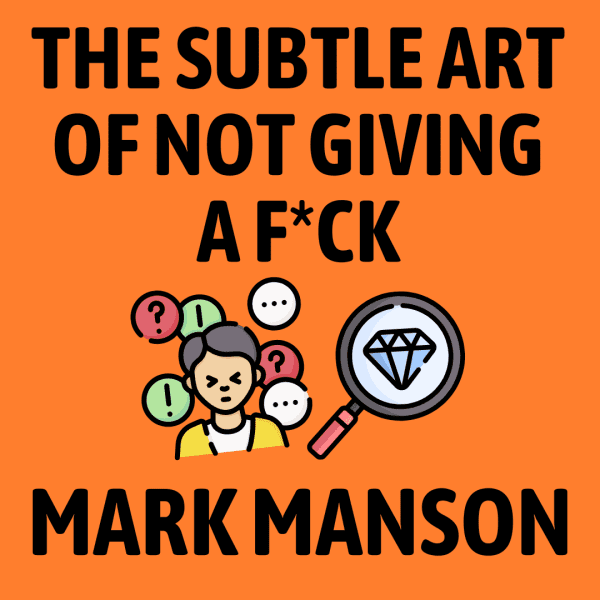


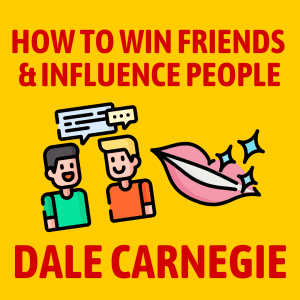
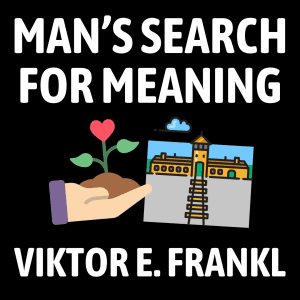
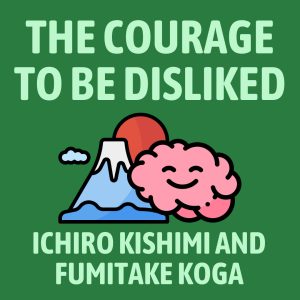
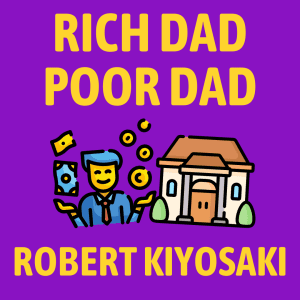


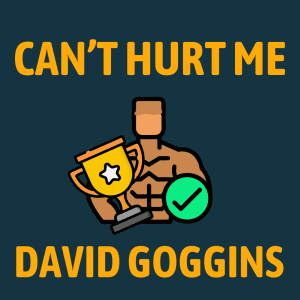



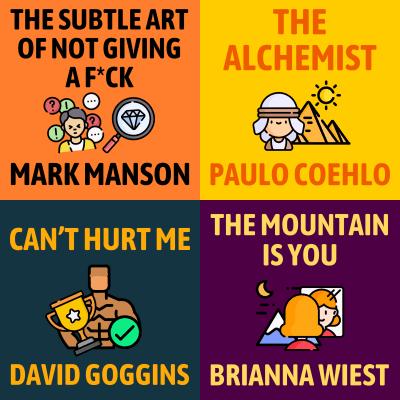


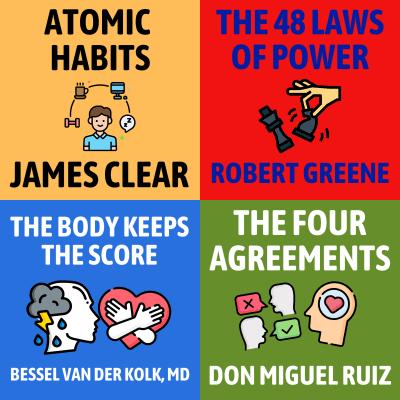
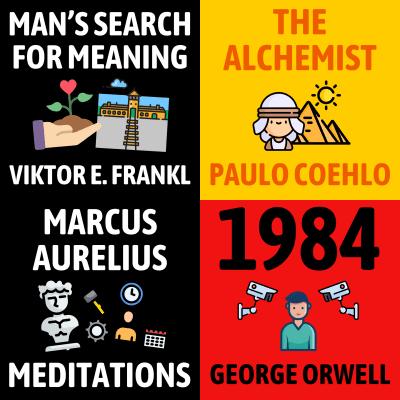
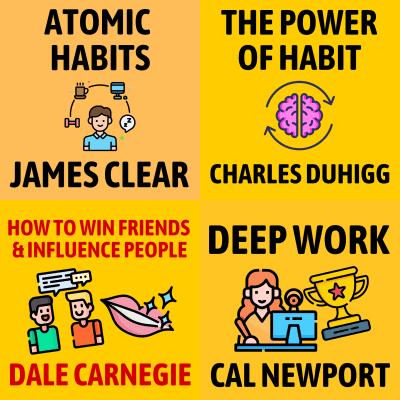
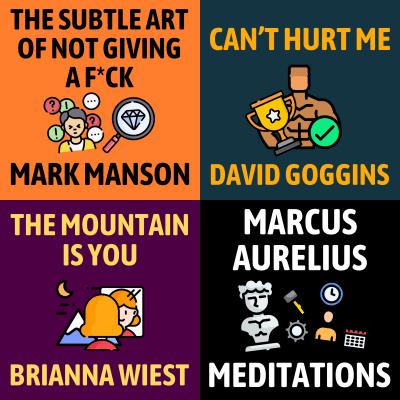



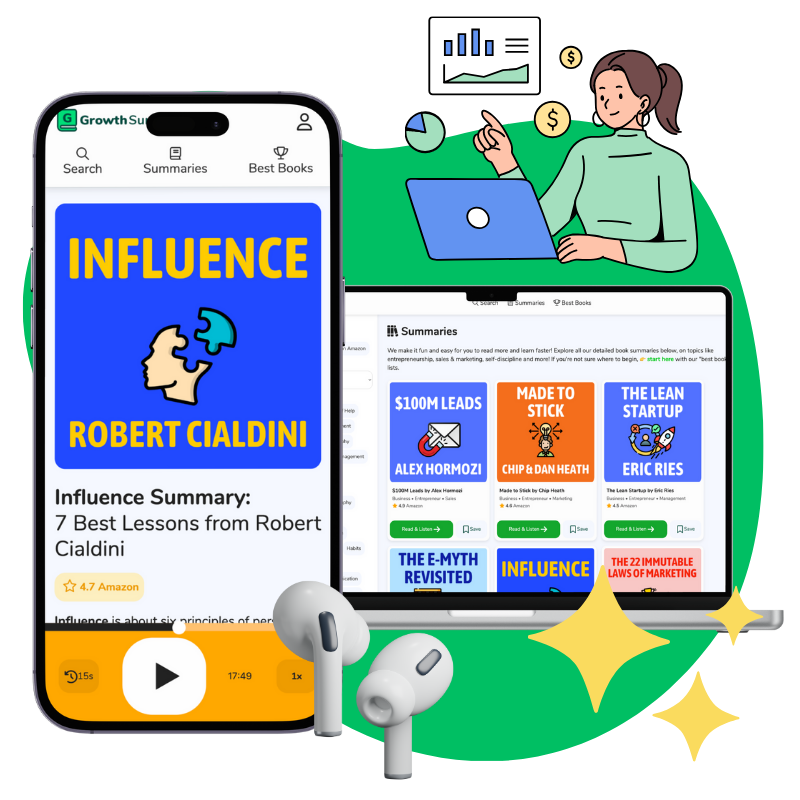
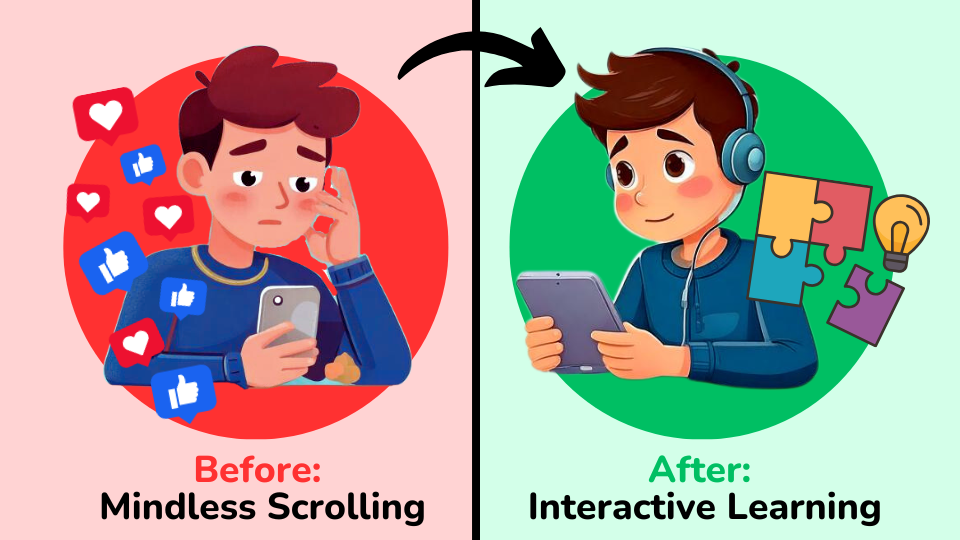








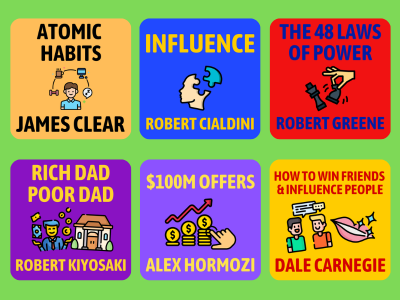
Dude, “The Subtle Art of Not Giving a Fck” is a game-changer! It’s like a slap in the face, but in a good way. Mark Manson’s no-bullshit attitude and hilarious stories really make you question all the unnecessary stuff you give a fck about. It’s all about embracing your imperfections, setting boundaries, and focusing on what truly matters. Highly recommend if you’re ready to free yourself from all the unnecessary stress and start living life on your own terms.